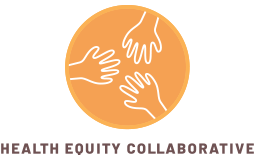28 Jun MANA & LATINO Magazine Team Up to Host a Capitol Forum on Latina Health
In May 2024, MANA, a National Latina Organization and LATINO Magazine teamed up to host a forum on Capitol Hill to discuss opportunities to improve Latina health and wellness. The conversation featured representatives from Congress, the National Institutes of Health (NIH), Latino advocates, and members of industry and the media.
Check out some highlights from the discussion below.
Highlights from the Discussion:
In Congress, I have been focused on making healthcare more accessible and more affordable for everyone in our community. As a doctor and the daughter of immigrants who understands first-hand the uphill challenges that our community faces when looking for healthcare services, it fills my heart to know that there are many of us working together to break the cultural and linguistic barriers that Latinas face every day. Thank you to MANA, LATINO Magazine, and everyone who continues working diligently for Latinas to achieve health equity.
Representative Yadira Caraveo (D-CO)
About three in 10 adults report they haven’t taken their medication as described due to costs and that number rises to four in 10 for Latinos. To address these high costs Congresswoman Barragán has led on bills to promote affordable alternatives such as generic drugs, expand Medicare coverage of drugs, and reform certain drug pricing practices that lead to high costs for patients. One bill that she co-led is the Delinking Revenue from Unfair Gouging Act or the DRUG Act (H.R. 6283), which would reform harmful practices by pharmacy benefit managers (PBMs) that lead to increased prices for consumers. She also leads the HELP Copays Act (H.R.830), which would ensure that patients copays are going towards the cost of their medication. For Latino communities who often face higher rates of chronic illnesses and are disproportionately affected by high drug costs due to lower insurance coverage and economic instability, these bills can help alleviate financial burdens.
Michelle Tabajonda, Health Policy Staffer, Representative Nannette Barragán (D-CA)
Latinas are no longer a passive force on the outside. Latina leaders, like those in the biopharmaceutical industry who are researching new treatments and cures, are improving health outcomes in real time. Latinos and our families can now look to the contributions of Latinas for inspiration and guidance. We are champions of public policy solutions that address pervasive disparities, promote exciting career opportunities for the next generation of leaders, and ensure continued medical innovation.
Amy Hinojosa, President and CEO, MANA, A National Latina Organization
Health disparities are exacerbated by a lack of outreach. Latinos are often unaware of the resources that are available to them to address inequities. Thus, it is the role of Latino owned media, like LATINO Magazine, to help get the word out. LATNIO Magazine is focused on amplifying discussions about improving the lives of Latino populations. Health equity is an issue that impacts all of us. That’s why we will continue to be a champion for these issues.
Alfredo Estrada, Editor and Publisher, LATINO Magazine
Obesity is often stigmatized as a personal failing. But we must get over our biases and acknowledge obesity for what it is, a disease. Obesity is treatable and with new medical advances there is now a wide continuum of care for it. Congress should pass legislation to establish Part D coverage for anti-obesity medication and ensure access to continuing care, so older adults are also able to receive new medications and treatments.
Dr. Yanira Cruz, MPH, DrPH, President and CEO, National Hispanic Council on Aging (NHCOA)
We need more Latinas to go into public health and ultimately into healthcare positions in government administrations. Latinas are caregivers. They know the root of the problem and we need to put them in positions to address challenges head on. We need them in these spaces to lead and bring people together.
Yvonne Rodriguez, Member, Board of Directors, National Hispanic Health Foundation (NHHF)
Women who are productive, who take care of their families, who go to work, who study, are also going to influence the health of their families. A focus on preventing the development of diseases must be a consideration to improve health outcomes among Latino populations. Prevention doesn’t necessarily start in the healthcare system. It starts in the community, at home, in houses of worship, at school, everywhere we spend our time before we interact with the healthcare system. We need to think more creatively about prevention and come up with ideas and strategies that really get to the heart of the health issues we face.
Dr. Larissa Avilés-Santa, M.D., M.P.H., Director, Division of Clinical and Health Services Research, National Institute on Minority Health and Health Disparities (NIMHD)
Latinas are making strides in STEM and healthcare is just one of many fields they are working in and making meaningful contributions. There are so many great organizations that are supporting this and engaging individuals at early ages. I love to see this, but what I would love to see more is Latinas being courageous enough to know that we can. It doesn’t matter if you are working in STEM, legal, management, or public administration. We—Latinas—are the fastest growing minority in the country, so we definitely need to believe that we are capable of doing big things.
Lorena Kuri, Member, Women of Color in Pharma (WOCIP)


